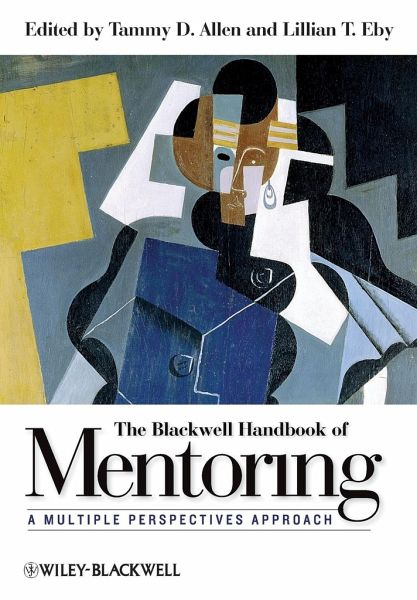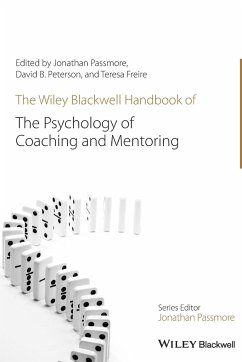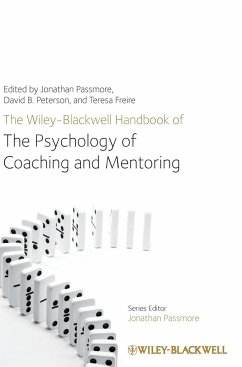
The Blackwell Handbook of Mentoring
A Multiple Perspectives Approach
Herausgegeben von Allen, Tammy D.; Eby, Lillian T.

PAYBACK Punkte
34 °P sammeln!
Cutting across the fields of psychology, management, education, counseling, social work, and sociology,The Blackwell Handbook of Mentoring reveals an innovative, multi-disciplinary approach to the practice and theory of mentoring.Provides a complete, multi-disciplinary look at the practice and theory of mentoring and demonstrates its advantagesBrings together, for the first time, expert researchers from the three primary areas of mentoring: workplace, academy, and communityLeading scholars provide critical analysis on important literature concerning theoretical approaches and methodological is...
Cutting across the fields of psychology, management, education, counseling, social work, and sociology,
The Blackwell Handbook of Mentoring reveals an innovative, multi-disciplinary approach to the practice and theory of mentoring.
Provides a complete, multi-disciplinary look at the practice and theory of mentoring and demonstrates its advantages
Brings together, for the first time, expert researchers from the three primary areas of mentoring: workplace, academy, and community
Leading scholars provide critical analysis on important literature concerning theoretical approaches and methodological issues in the field
Final section presents an integrated perspective on mentoring relationships and projects a future agenda for the field
The Blackwell Handbook of Mentoring reveals an innovative, multi-disciplinary approach to the practice and theory of mentoring.
Provides a complete, multi-disciplinary look at the practice and theory of mentoring and demonstrates its advantages
Brings together, for the first time, expert researchers from the three primary areas of mentoring: workplace, academy, and community
Leading scholars provide critical analysis on important literature concerning theoretical approaches and methodological issues in the field
Final section presents an integrated perspective on mentoring relationships and projects a future agenda for the field














